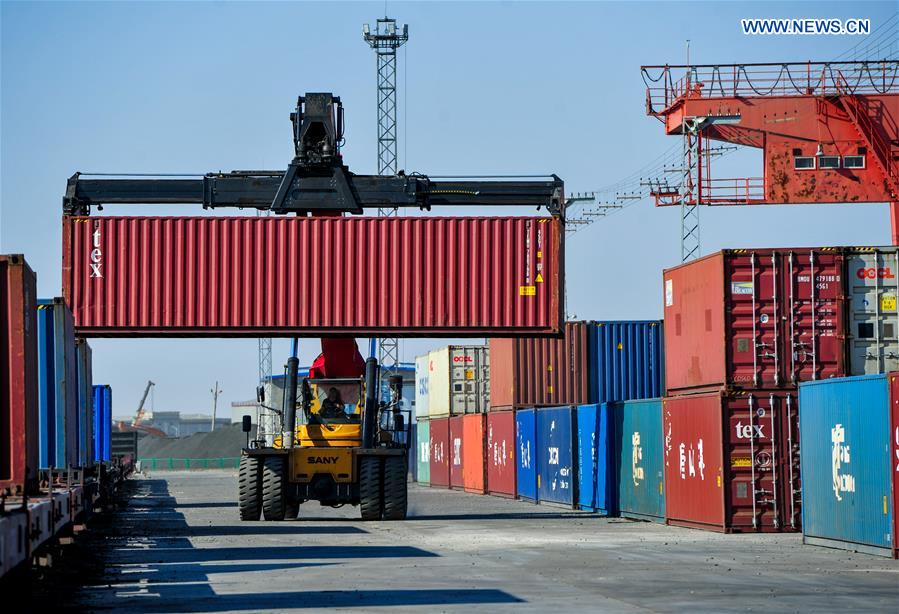China can invest to help other nations develop


With high-level meetings to commemorate the 75th anniversary of the United Nations underway, President Xi Jinping's questions and answers on the future of the UN and the world keep resonating.
Reiterating China's support for multilateralism in general and the UN in particular, Xi emphasized promoting cooperation and real action on the ground in the context of the UN. Such real actions can be extended to an often overlooked aspect: multilateral financial institutions and the impact they can have.
China has an unparalleled track record in development of finance. While it is mostly domestic, nevertheless it was able to bring about development and uplift its people from abject poverty. What's remarkable is that it is achieving this while maintaining a fairly healthy public purse balance.
China can consider investing further in helping other nations develop along the path that China itself took.
As its experience suggests, investing in this kind of development can bring significant rewards, to both the investor and the host nation, so China has enabled its sovereign wealth fund (China Investment Corp) to invest directly in developing countries.
However, in order to do it right, one ought to engage multiple stakeholders, and a multilateral approach is required.
A multilateral approach to financing development projects is based on creating a development bank that invests on behalf of its members. The Asian Development Bank, whose headquarters are in the Philippines capital of Manila, has been a big player in development financing in Asia since the 1960s, but the region's needs far exceed its capacity.
China has outlined financial assistance by the Belt and Road Initiative. So far, the BRI has been focusing on macro projects, which are big enough to get funding from State banks like the Export-Import Bank of China.
So new vehicles are required to help deliver on projects with impact, without having to be constrained by scale or framework.
Two new multilateral development banks have been set up-the Asian Infrastructure Investment Bank and the New Development Bank. The AIIB focuses on infrastructure in Asia, whereas the NDB concentrates on the BRICS countries: Brazil, Russia, India,China and South Africa.
The impact of these new development banks is already perceivable. For example, the investment that the AIIB approved for the improvement of the Sylhet-Tamabil highway in Bangladesh is an excellent example of the kind of impact a well-thought-out, MDB-funded project can have-a simple yet powerful investment that will improve lives and boost economic development.
Yet a strong argument can be made that these development banks have yet to live up to their full potential.
The Western institutions are promoting a focus on environmental, social and governance issues that prevent them from investing in things like traditional power generation. This neglects the basic needs of developing nations, such as cheap and reliable power and communications networks.
One ought to take the best practices in things like governance on board, but the priority has to be development and improving quality of life.
Given the Chinese experience, and that of members of the two multilateral development banks, there clearly is an opportunity for these banks to invest in projects that bring about social development and a positive change in the environment.
A similar opportunity exists for China Investment Corp. The fund has suffered from senior departures recently, and its operations are complicated and multifaceted.
However, it does have a direct investment arm that can also pioneer a Chinese-led approach to investing in development projects that both produce returns and make an impact.
The purpose is to derive a real-world-tested environmental, social and governance framework that also reflects President Xi's aspirations on having a real impact, thus promoting cooperation on development paths most underdeveloped nations may adopt.
Saying no outright to fossil fuels or nuclear power is nonsensical, given the power shortages in Asia. Furthermore, it's possible to build out traditional power infrastructure and still cut carbon emissions like, for example, moving from biomass burning for heat to a clean coal-fired plant, which would be a big reduction in per capita carbon dioxide emissions.
It is important to manage relationships with hosts and members of multilateral development banks. Encouraging the host economies to adopt practices that will offer immediate benefits is the way to get a more widespread uptake of any broad policy.
The environmental, social and governance framework is considered extra financial-that is to say, it's over and above the bottom line of any project proposal.
Here lies an opportunity for Chinese institutions to codify a holistic approach that would bring about cooperation among all stakeholders and real action on advancing the quality of life while being mindful of the environmental impact.
The author is an analyst, portfolio manager and private equity adviser.
































